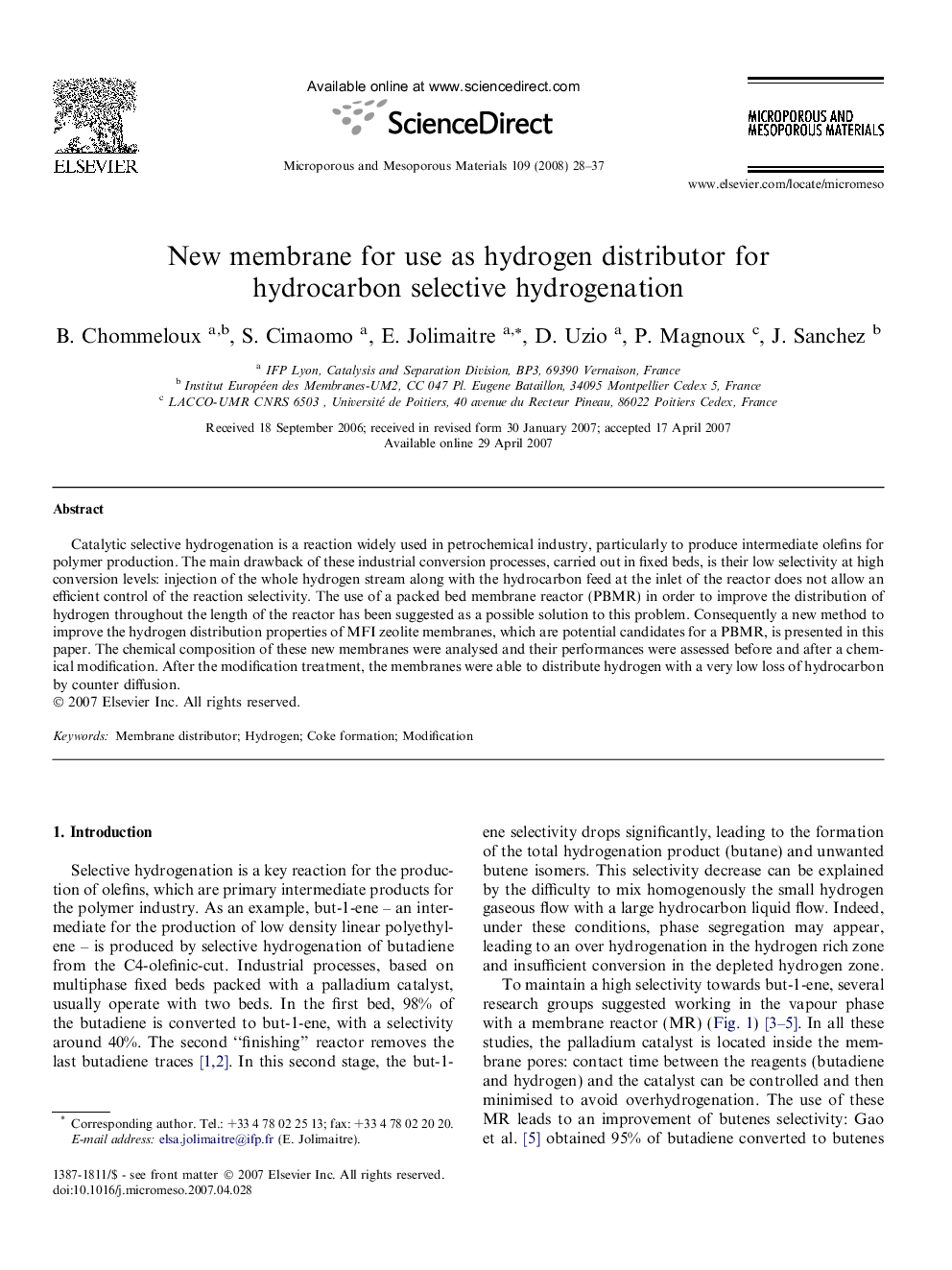| کد مقاله | کد نشریه | سال انتشار | مقاله انگلیسی | نسخه تمام متن |
|---|---|---|---|---|
| 76409 | 49140 | 2008 | 10 صفحه PDF | دانلود رایگان |

Catalytic selective hydrogenation is a reaction widely used in petrochemical industry, particularly to produce intermediate olefins for polymer production. The main drawback of these industrial conversion processes, carried out in fixed beds, is their low selectivity at high conversion levels: injection of the whole hydrogen stream along with the hydrocarbon feed at the inlet of the reactor does not allow an efficient control of the reaction selectivity. The use of a packed bed membrane reactor (PBMR) in order to improve the distribution of hydrogen throughout the length of the reactor has been suggested as a possible solution to this problem. Consequently a new method to improve the hydrogen distribution properties of MFI zeolite membranes, which are potential candidates for a PBMR, is presented in this paper. The chemical composition of these new membranes were analysed and their performances were assessed before and after a chemical modification. After the modification treatment, the membranes were able to distribute hydrogen with a very low loss of hydrocarbon by counter diffusion.
Journal: Microporous and Mesoporous Materials - Volume 109, Issues 1–3, 1 March 2008, Pages 28–37